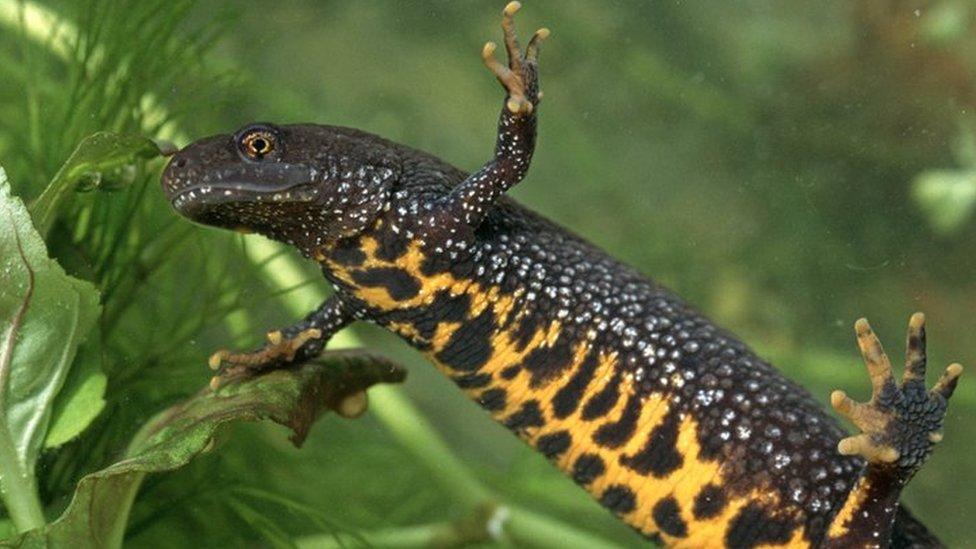Rare newts encouraged to breed in new pond plans
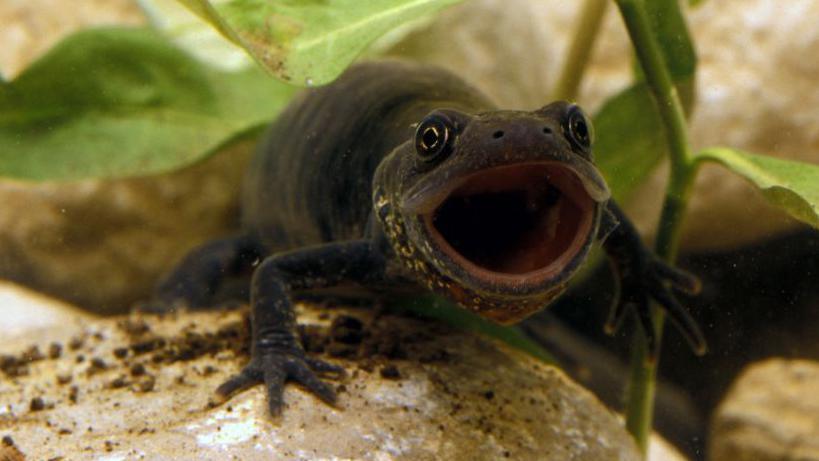
New ponds need to have an unpolluted water source, remain fish-free and undisturbed by dogs, according to the Newt Conservation Partnership
- Published
Seven new ponds will be introduced at a beauty spot to encourage rare wildlife to breed.
The clean water ponds, along with eight hectares (18 acres) of wet grassland, will be created at Stoke Park Farm near Bishopstoke, Hampshire.
It is hoped the area will provide a habitat for species like the heavily-protected great crested newt.
Work is expected to start in the autumn, according to Eastleigh Borough Council.
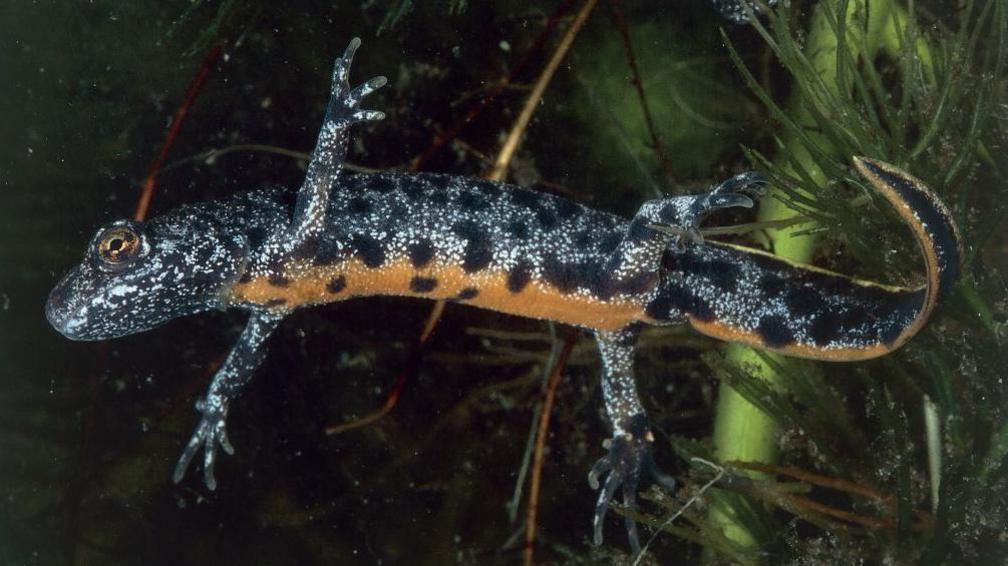
Great crested newts spend most of their time on land and only return to ponds for breeding in the spring
The authority has teamed up with the Newt Conservation Partnership for the scheme.
Anna-Marie Dennis, who is leading the project, said hedgerows, trees and scrub would be planted in the area.
"This will allow great crested newts to move about the landscape in sheltered safety," she said.
"Like all amphibians, newts spend most of their adult life on land returning to ponds to breed in the spring."
The iconic amphibians are a European protected species, external, making it a criminal offence to harm them, their eggs or their habitats.
Differing in size and depth, the new ponds will provide a variety of different habitats.
Other priority species, such as toads and water voles, dormice, damselflies and dragonflies, butterflies and breeding birds, will also benefit from the environment.
The habitat will be managed by the council for 25 years, with annual monitoring carried out by the Newt Conservation Partnership.
Follow BBC South on Facebook, external, X (Twitter), external, or Instagram, external. Send your story ideas to south.newsonline@bbc.co.uk, external or via WhatsApp on 0808 100 2240, external.
More on great crested newts
- Published16 March 2024
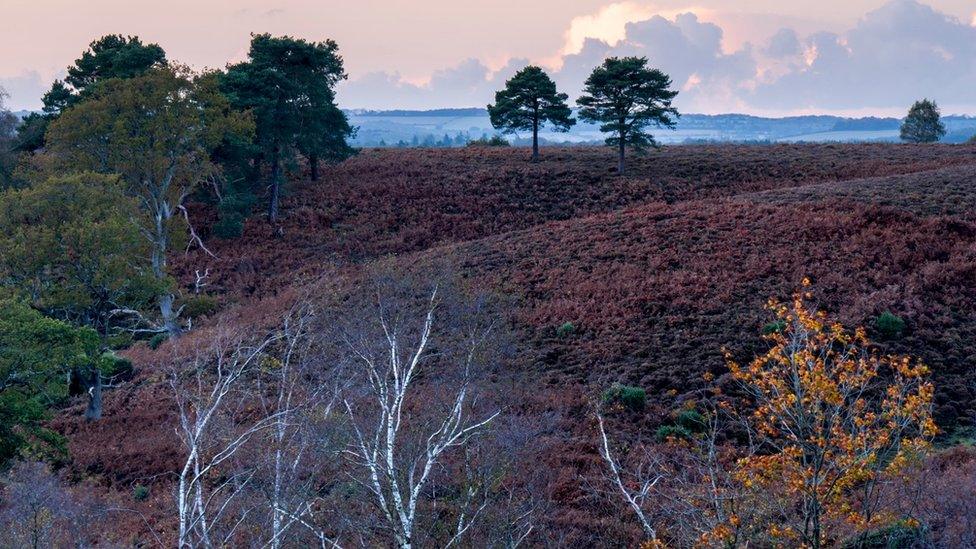
- Published21 February 2024
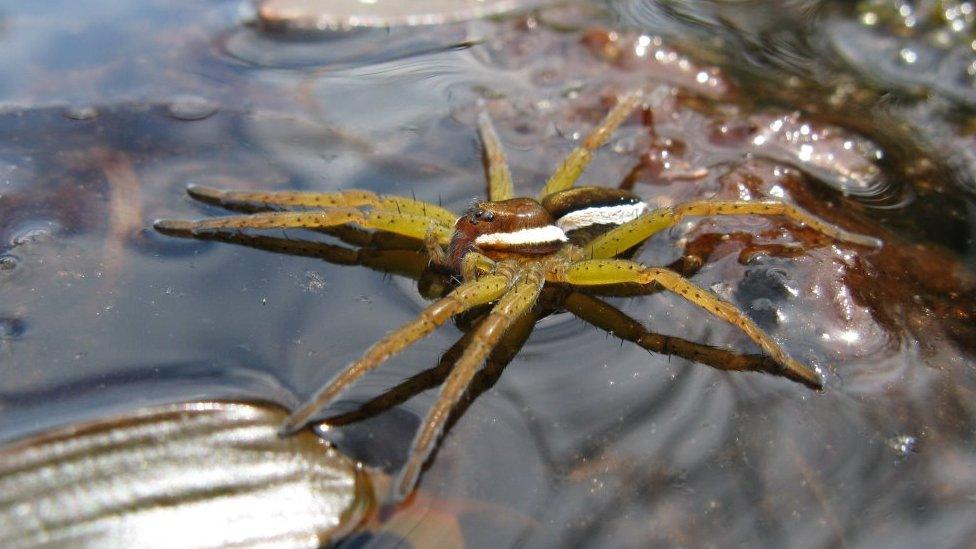
- Published11 December 2023
